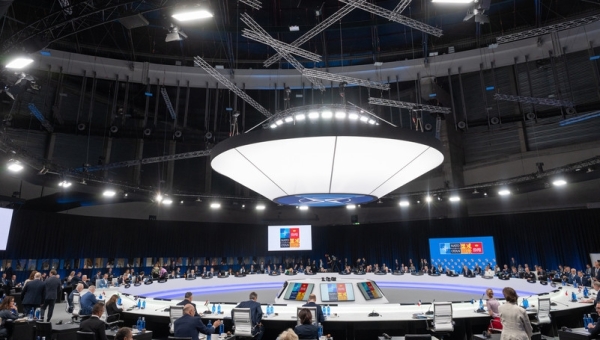Is Sweden doing too little for ‘earthquake diplomacy’ with Ankara?
The catastrophic earthquake in Turkey has put on hold its row with Sweden on Nato expansion — but is Stockholm missing an opportunity to really mend relations?
Ever since the twin Swedish and Finnish bids to join Nato were filed in May last year, Turkey has doubled down on its conditions to accept the two countries as new members.
Last July, Turkey gave Sweden a list of 33 names of exiled Turkish dissidents of mostly Kurdish origin to be extradited before it would ratify the Swedish bid.
The list soon grew to 71 names.
And it grew to more than 120 in January when a far-right Danish-Swedish provocateur, Rasmus Paludan, burned a copy of the Quran outside Turkey’s embassy in Stockholm.
Many experts on Swedish-Turkish relations agree that Sweden is being used as a political punchbag by the Turkish president Recep Tayyip Erdoğan’s ruling AKP party ahead of elections in May.
The election might now be postponed due to the natural disaster, meaning the dispute could drag on into a planned Nato summit in July.
And there’s even high-level talk of Finland joining Nato alone — breaking a decades-long tradition of military cooperation — due to the urgency of Russia’s security threat to Europe.
In this context, Swedish foreign minister Tobias Billström announced a day or so after the earthquake in southeast Turkey and northern Syria that his country was donating 7 million SEK (€628,000) to the catastrophe fund.
A few days later, the Swedish foreign ministry added 30 million SEK to the pot.
Five days after the earthquake, the first Swedish airplane landed in Turkey with aid and personnel.
And while there is no explicit quid pro quo in Sweden’s humanitarian effort, the Nato connection is on Stockholm’s mind.
When EUobserver asked the Swedish foreign ministry how the negotiations with Turkey on Nato might be affected by the current situation, it sent a link with a summary of the earthquake aid that Sweden is giving to Turkey and Syria.
The concept of ‘earthquake diplomacy’ also isn’t new.
The phrase was coined in 1999 following a series of tremors in Greece and Turkey, which improved relations due to an outpouring of mutual assistance by ordinary people.
But if that is what Billström was hoping for, then Sweden ought to be doing more, according to Paul Levin, the director of Turkish studies at Stockholm University.
"As with other catastrophes, such as the tsunami in Thailand in 2003 or the Covid pandemic, the Swedish government has acted slowly," he told EUobserver.
An outpouring of Swedish aid could have given Erdoğan a golden off-ramp to the Nato row, Levin added.
"There’s [still] an urgent need for tents and sleeping bags," he said. "Sweden could, both in its role as the current chairman of the EU and its role as a future [Nato] partner for Turkey, emphasise the aid given to Turkey even more", Levin said.
Meanwhile, EU aid-coordination meetings for Turkey and Syria could have been held in Stockholm rather than Brussels.
"In Turkey, these things matter. Active public diplomacy with pictures in social media and vocal statements are seen as positive," Levin said.
Instead, Sweden’s contribution has gone unnoticed in Turkish media, which remains dominated by opposition criticism of government mistakes, Levin noted.
Andrea Karlsson, a Swedish expert at the European Endowment for Democracy, an EU-funded grant-making body in Brussels, also said the earthquake has blown Turkish politics wide open.
"It’s difficult to foresee what the combination of immense collective sorrow and anger can lead to, but this catastrophe will be central to the election campaign in Turkey, even though the elections might be postponed," she told this website.
Helping people in need out of genuine sympathy can pay political dividends without any cynical agenda, she said.
It happened in the 1999 Greek-Turkey quake and it is happening again in 2023 — but with Sweden not much in sight.
"After the earthquake in 1999 the relations between Greece and Turkey were greatly improved, and now they are contributing again despite the relation being very tense. The same goes with Armenia, which now opened its borders [with Turkey] for the first time in 30 years for humanitarian aid," Karlsson said.
"With this said, Sweden can, with generous humanitarian aid, also contribute to improve relations with Turkey," she said.

